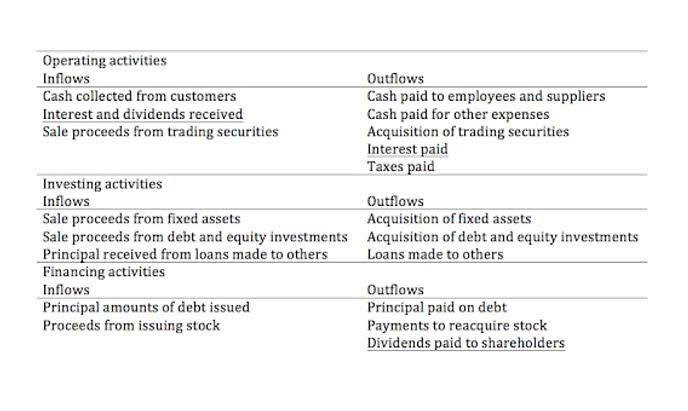Understanding Going Concern: What It Means and Its Implications

Continuation of an entity as a going concern is presumed as the basis for financial reporting unless and until the entity’s liquidation becomes imminent. Preparation of financial statements under this presumption is commonly referred to as the going concern basis of accounting. If and when an entity’s liquidation becomes imminent, financial statements are prepared under the liquidation basis of accounting (Financial Accounting Standards Board, 20141). Disclose going concern when management’s plans don’t alleviate substantial doubt about an entity’s ability to continue operating. This is typically done when a company’s financial situation raises concerns about its long-term viability. Going Concern is an accounting principle that assumes a business will continue to operate for the foreseeable future and will not be forced to liquidate or shut down.
Legal Definition
Potential investors have the right to know if the company’s going concern or longevity is in question. If nothing about the cash flow going concern is mentioned in the financial statementnotes, it is assumed that the company faces no threatening financial problems. The going concern concept is extremely important to generally accepted accounting principles.
- Another example of this concept is the prepayment and accrual of various business expenses.
- Conversely, a healthy business shows revenue growth, profitability growth with margin improvement, and growth in product sales.
- The term “going concern” originates from the notion that a business is “going” or operating currently and is expected to continue to do so for the foreseeable future.
- It can continue generating revenues, manage expenses, and maintain its overall financial health without the need for substantial restructuring or asset sales that would impair its ability to operate.
- If a business is deemed a going concern, it can often secure loans, attract investors, and maintain employee morale.
Examples of going concern concept
However, there are specific conditions that may cause substantial doubt about a company’s ability to continue as a going concern. In such cases, it is essential to understand the implications and report the relevant information accordingly. They can help business review their internal risk management along with other internal controls.

What is the importance of the going concern concept?
For a company to be a going concern, it usually needs to be capable of surviving a significant debt restructuring or massive financing overhaul if necessary. This determination, based on a study of the company’s financials, is generally understood to be good for at least 12 months. For shareholders, a positive going concern status usually demonstrates that the business is stable and likely to continue generating profits in the future. For example, let’s say a company that manufactures skateboards is struggling to stay in business, and is expected to shut down within the next few months. The going concern concept accounting reveals the true financial integrity of an organization. It is an action an organization conducts to ensure a clearer picture of their financial and growth related concerns.
- Helping clients meet their business challenges begins with an in-depth understanding of the industries in which they work.
- In such cases, it is crucial to investigate the root causes behind these trends and assess their potential impact on the business’s future prospects.
- This allows for amortisation or depreciation to be done in a way that reflects the actual benefits received by the business over the life of an asset and thereby presents a more accurate value in the financial statements.
- The company will be required to write down the value of its assets if liquidation value is lower than the current value on the balance sheet.
- GAAS considers this principle a crucial parameter for determining the longevity of a business.
- Causes of a going concern warning can be varied, but some common reasons include a company’s inability to generate cash to meet its financial obligations, a significant decline in revenue, or a major disruption to its operations.
- Understanding the differences between going concern and liquidation is essential for investors, analysts, lenders, and other stakeholders to evaluate the financial health and future prospects of businesses accurately.

This precarious financial state implies a growing risk of having to file for bankruptcy if adequate measures aren’t promptly taken. Notably, this term “going concern” refers to the company’s ability to generate enough cash to support its operations and avoid insolvency. A lack of confidence in this capacity can trigger a re-evaluation of assets and liabilities, often leading to asset sales or restructuring to stay afloat. Credit challenges would likely ensue, with lenders possibly calling in debts or setting steep borrowing rates to mitigate their risks. Shareholders and investors might experience a decline in their investment value and may seek to minimize losses.

Companies assume that their business will continue for an indefinite period of time and that the assets will be used in business until they are fully depreciated. Another example of this concept is the prepayment and accrual of various business expenses. Companies can prepay and accrue expenses only when they and their trade partners believe that they will not shut down operations in the foreseeable future.

Liquidation going concern value is very important for creditors and stakeholders, who would be paid out of this money. The concept is not clearly defined anywhere in the Generally Accepted Accounting Principles (GAAP), which leaves a considerable amount of interpretation regarding when an entity should report it. However, Generally Accepted Auditing Standards (GAAS) requires an auditor to verify an entity’s ability to continue as a going concern. The concept of going concern is relevant not only from an income statement perspective but also from a balance sheet perspective.

Without this concept, businesses would need to adopt alternative bases of accounting, such as liquidation accounting, which can significantly alter the way financial information is presented. One major disadvantage of the going concern concept is that it assumes https://www.bookstime.com/ continuity of existence indefinitely. This can mislead the investors and creditors in their assessments of an entity’s actual financial health.

Laisser un commentaire
Participez-vous à la discussion?N'hésitez pas à contribuer!